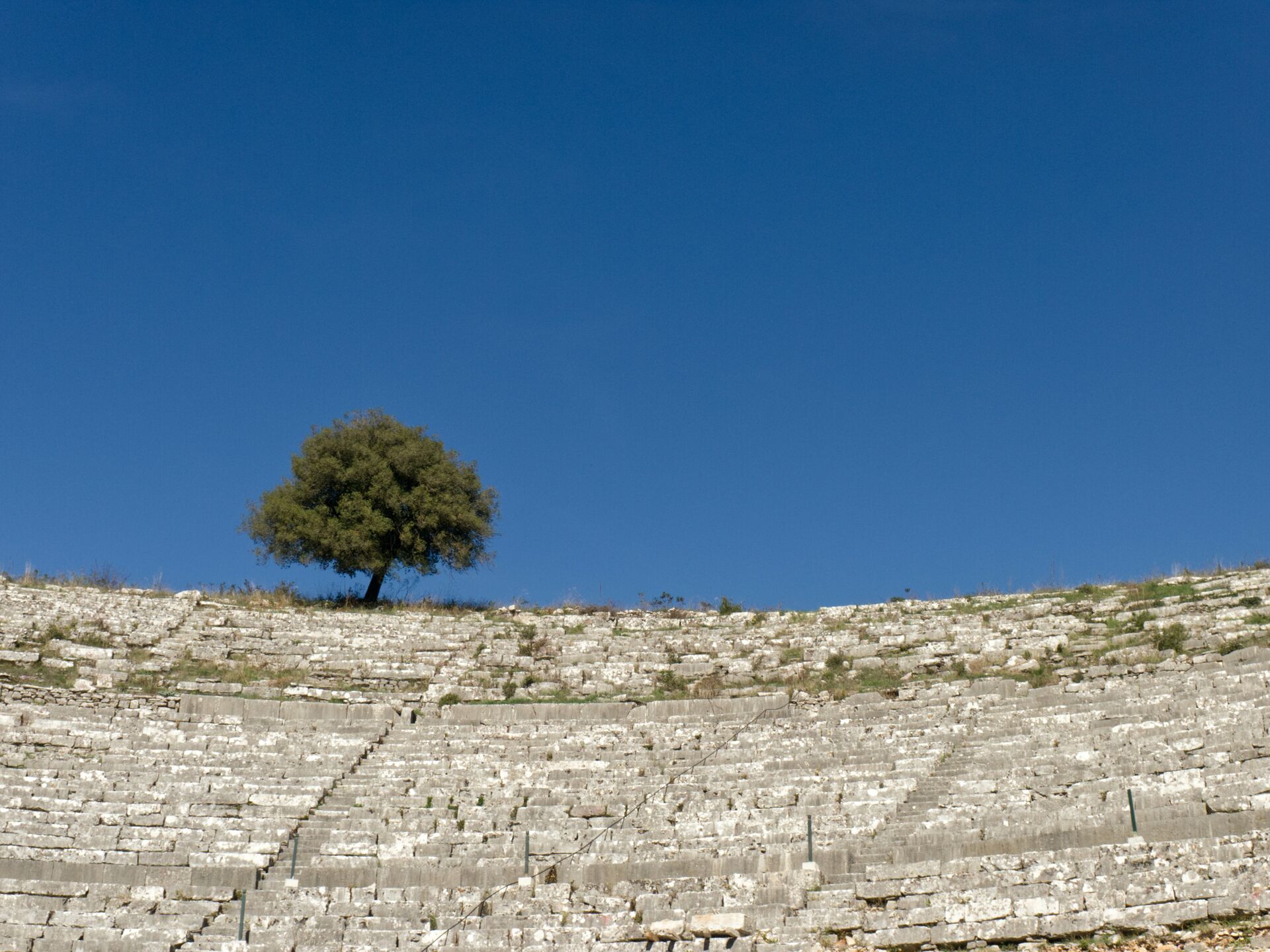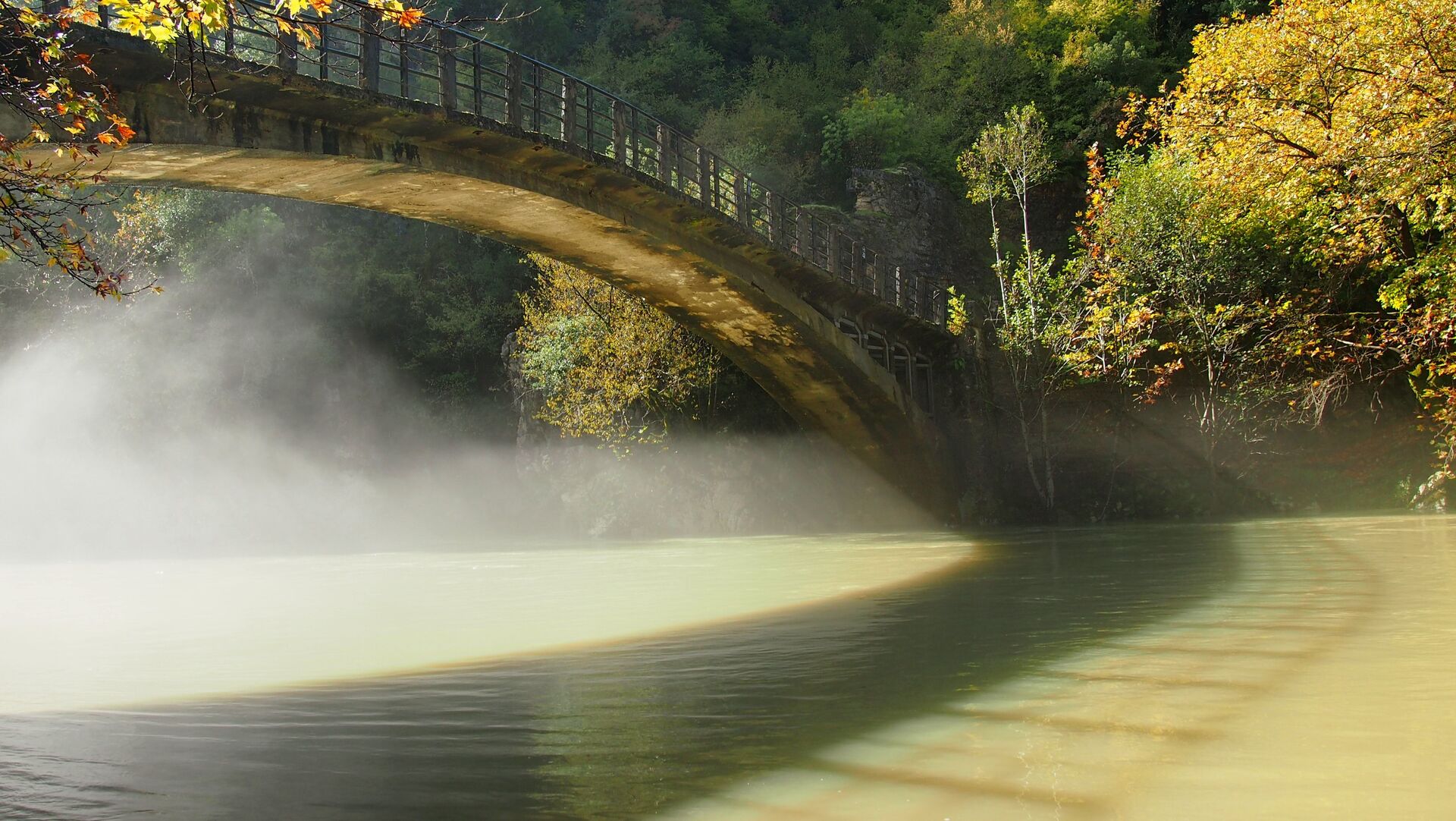Epiros, is a place of geographical contrasts. The high mountains and winding roads that take you across terrain that only shepherds and trekkers seem to traverse with ease. Then you have a coastline that once acted as a buffer to the Romans; a coastline that has many gems for the water enthusiast.
What makes the ancient Greek lands unique is that they were not all similar. Epiros, like Macedon, differed from the city states of southern Greece as they tended to have a king in place, essentially ruling a series of villages or towns.
Historian Strabo has told us that there were up to fourteen tribes in Epiros with the Molossians the most powerful. Alexandros’ mother Olympia was from this tribe. Helenus and other survivors of the Trojan War migrated to Epiros in 1183 BCE founding Buthrotum under Neoptolemus. This was the son of Achilles and through his son and lineage there would be a connection to Alexander of Macedon.

Interestingly, Aristotle spoke of Dodona which is slightly inland from the northern coast as the area where the original Hellenes come from; the Shrine of Dodona was second only to Delphi.
Over the next thousand years the people of Epiros who spoke a North-West Doric Greek dialect, had to contend with Illyrian and other tribes in an uneasy existence. The locals defended their attempts to take territory, and at the same time expanded their own region until the rise of the Molossian Dynasty by 370 as the dominant force.
In 334 BC, Alexander of Epiros acceded to the throne and he chose to invade Magna Graecia, Greater Greece in Italy. There was no point taking on his powerful neighbours in the Greek heartland. Therefore across the Adriatic the mixture of Latin and Greek appealed to Epiros. An obsession that would create history, while simultaneously proving a thorn in their side.
Alexander was killed by the Romans in battle just three years later.

In 306 BC a name that would be used for all time to mark a costly victory, or rather a hollow one, came to the throne. The brilliant and charismatic Pyrrhus, a charming man destined for international fame as the champion of the Greek cause in Italy, and a writer through his own memoirs.
I should point out he was the second cousin of Alexander the Great through his mother, Olympia.
Deposed in 302, he was supported by Ptolemy of Hellenistic Egypt to regain the throne in 297. He expanded territory against Macedon, taking frontier zones and Thessaly for a while before Lysimachus forced him back to Epiros in 284 BC.
In 281 he took on the might of the Romans in Magna Graecia, initially to help the Greek city of Tarentum who asked for Pyrrhus’ protection against Rome. He was again supported with resources from Ptolemy, including 20 elephants. The elephants were not for circus tricks, they formed a key strategy for battles.

At Heraclea the following year he won with a force of 25,000 and in 279 BC he defeated them again at Ausculum in Apulia. This proved a costly victory as his large force suffered heavy casualties, percentage wise, compared to the Romans, creating a strain on his military numbers. Usually, Pyrrhus would win a battle with the loss of thousands of men, and the Romans would suffer higher casualties. These Romans, however, would always be able to replenish their forces. Pyrrhus was able to draw on the Greek cities, though nothing matched the almost unlimited manpower of Rome. Thus, the notion of a Pyrrhic victory was created.
Crossing over to Sicily to take on the Carthaginians, Pyrrhus suddenly changed. He adopted the moniker of King of Sicily and began to behave as a tyrant. This behaviour and ego was frowned upon by the Greeks of Sicily who had wanted a friend, not a monarch.
Despite a string of victories against the Carthaginians, the Battle of Beneventum in 275 was one that was inconclusive. Add to the mix the superior power of Carthage at sea, Rome taking back many Greek cities in Italy while he was in Sicily and Sicilian public opinion beginning to turn against him, Pyrrhus considered a return to Epiros.

Taking the hint that this would not be a war he could win overall, the undefeated Pyrrhus withdrew to Epiros, in effect losing Magna Graecia except Tarentum.
With his confidence as a warrior still high, he destroyed Antigonus the new ruler of neighbouring Greek Kingdom of Macedon in 274, gaining the Macedonian throne. Hence some solace to the withdrawal from across the Adriatic.
Epiros was now the strongest power in the Greek heartland.
Rather than rest on his laurels, he decided to invade Sparta. No one had ever succeeded in taking the unwalled city. His pretext was to restore Cleonymus as a King of Sparta. The confident Pyrrhus thought he was untouchable as he only knew how to win. Unfortunately for Pyrrhus his force of 27,000 was held up by a trench in front of Sparta, defended by 2000 men and women. After two days, Pyrrhus retreated for Argos, thinking that he would return the next year. At Argos, during a night skirmish following his arrival there, he was killed. His death came from a woman who through tiles and stones down at him when he was fighting on the street below.

The dynasty that he came from, remained in power until approximately 232. Technically, there was a unique system in place thereafter called the Epirote League which consisted of several tribes as somewhat of a republic, including the largest of Melossia.
In 167 BC, following the victory of the Romans against Macedon and the Molossians of Epiros, Melossia came under Rome and in essence ended what remained of Epiros as a power. 150,000 people were subsequently enslaved by Rome. A tragedy of epic proportions, and the decline of Epiros’ power until the middle ages when the Despotate of Epiros became a power in the thirteenth century.

Had Pyrrhus a larger military he could have taken Rome. The consequence would have been that the rise of that city may never have occurred, changing the course of history. His troops managed to march close to Rome. Realising he was vastly outnumbered against superior resources he returned to the Greek region and Rome would eventually force him out without actually defeating him. A strategy Rome would use on Hannibal of Carthage after 218 BC, despite his many early victories and support of Magna Graecia. In both eras, the Greeks of Magna Graecia mostly did not support the Romans.
Usually when people they think of ancient Greek power, they focus on Sparta, Athens, Corinth, Thebes, Macedonia and the Ptolemies, tellingly overlooking the unique strength and growth of Epiros. For almost two centuries in the Hellenistic Age, the region was a big player on the Greek stage.
Billy Cotsis is the author of From Pyrrhus to Cyprus Forgotten and Remembered Hellenic Kingdoms, Territories, Entities & a Fiefdom, and frequent visitor to Magna Graecia for his documentary series.